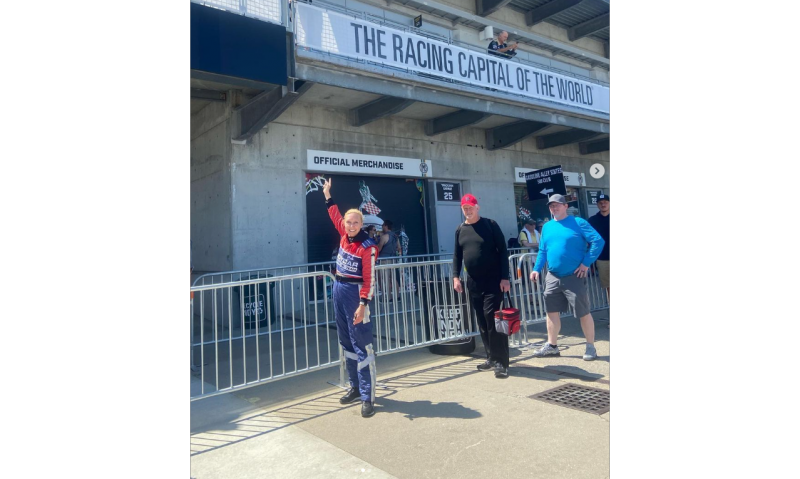
INDYCAR Safety Team physician and consultant talks about her path from West Point to racing series, as well as promoting Be the One.
Throughout the 2024 NTT INDYCAR SERIES, American Legion Social Media Manager Steven B. Brooks will be talking with veterans who work within the INDYCAR SERIES, whether for Chip Ganassi Racing, INDYCAR itself, or other racing teams, tracks or entities involved in the series.
This week we’re talking with 1992 West Point graduate and U.S. Army veteran Dr. Melissa McCarthy, a physician on AMR INDYCAR Safety Team and a safety consultant. An assistant professor of Emergency Medicine Practice in the Indiana University School of Medicine, McCarthy and others on the team provide care to drivers and spectators during racing events. As a safety consultant, McCarthy works with INDYCAR’s incident investigation team to analyze the results of crashes and what safety improvements can be made.
McCarthy, who served in the Army from 1992 to 1997, is a longtime INDYCAR fan and talked about her route from the U.S. Military Academy to INDYCAR, as well as the racing series’ promotion of The American Legion’s Be the One suicide prevention program.
Steven B. Brooks: What led you to West Point, and where did you end up after that?
Melissa McCarthy: I have seven brothers and sisters and kind of needed to find an opportunity for me to be able to pay for my college. I was applying for scholarships pretty much everywhere and was fortunate to get a congressional appointment to West Point. And after West Point, I went to the officer’s basic course in Georgia and then was stationed in Germany. I was there for about four years, and then I was stationed at Fort Bragg in one of the Airborne units down there.
Question: So, after that, what led you to medical school?
McCarthy: I was interested in medicine in my college years. And when I left the military, I was still working alongside the military as a government contractor until about 2013. Then I had the opportunity to change course and was thinking about medical school. So, I started just doing prerequisites and that type of thing, and one thing led to another, I was able to get a scholarship to medical school. And here I am.
Question: So, the Army and then medical school – how does that lead to working for INDYCAR?
McCarthy: My family are huge INDYCAR fans. My first Indianapolis 500 was when I was 11 years old. I’ve been to almost every one since, except for a few when I was out of the country. It’s a big thing for my family. It’s sort of our annual pilgrimage/family reunion to go to the Indy 500 every year. I was completing my emergency room residency up in Detroit, and Indiana University has a really unique program called the Motorsports Medicine Fellowship. It’s the only one in the country that specifically has a post-graduate training program for physicians – primarily emergency medicine physicians – to have a role in motorsports. I was the second to be chosen for that fellowship. I was chosen and completed that fellowship in June of 2022, and I fell in love with the whole INDYCAR team, and I decided to stay.
Question: What’s it like going from what was an annual event for your family to being at Indianapolis for most of the month of May and traveling around the nation for other races?
McCarthy: It’s pretty exciting. To be able to be a part of it, and not just a part of it, but feeling like I can have an impact on what’s happening – especially when it comes to some of the proactive things we’re doing with driver safety – it’s really very rewarding to be able to come in here first as a fan, and now as part of a team to try to improve what we are doing.
Question: Our Be the One program with Chip Ganassi Racing is all about making it OK to ask for mental health help. When you see your organization, INDYCAR, embracing this cause and highlighting it during the racing season, and with you being a veteran, is that a source of pride?
McCarthy: It’s an issue that’s very near and dear to my heart. I’ve actually had two very, very good friends who took their own lives following their discharge from the military. I know the struggles they went through personally, and I know there’s a lot more that we can be doing to help people like them. So I think (promoting Be the One) is a really great thing, not just spreading awareness and getting the word out there, but also helping find resources for people who might not know where to look for that.
- Be the One

